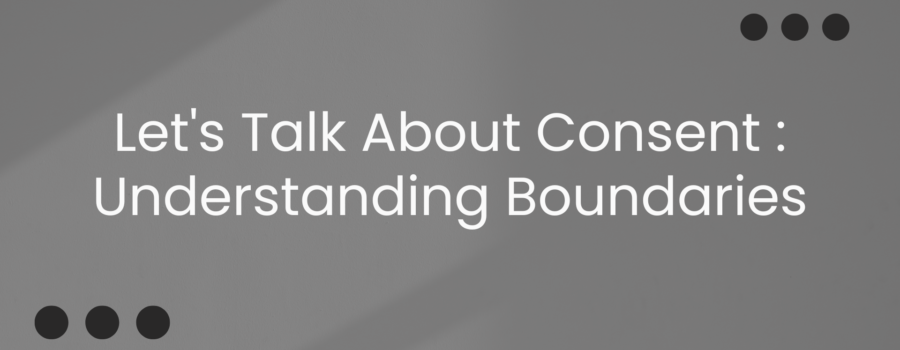Since February is the month the world tends to highlight the joy of romantic connection, we thought it might be helpful to talk about the sexual component of it, specifically in regards to consent. Though the word seems open to interpretation because it might feel subjective, we can establish some clarity about what consent is and what it’s not and how to get on the same page with yourself and your partner about it. This is to be understood and honored in every kind of romantic connection, no matter how superficial and brief or deep and committed the connection, including marriage.
There is a helpful article from Sexual Trauma Awareness & Response (STAR) about understanding consent that was supported by Subgrant number 2019-VA-01 5032 and was awarded by the Louisiana Commission on Law Enforcement through the Office for Victims of Crime, Office of Justice Programs. I want to share that information first. These are non-negotiable and not subjective.

To add to that, consent isn’t synonymous with flirting, even flirting that is sexual in nature. Some get confused on this. It is also important at the beginning of any romantic connection to go in with similar sexual expectations. These expectations are often based on an individual’s values and morals, maybe past experiences or even trauma, or wants and desires. It should never be assumed, no matter how shared your values may be, that both people will have similar sexual expectations or boundaries. This should be discussed up front in clear ways and should be a conversation throughout the relationship as needed. If both people are not on the same page, then the relationship cannot continue in healthy ways. If two parties begin to explore some forms of sexual connection, you also can always remember you have the power to say “no” and stop at any point, even if you’d decided previously that you wanted to “go all the way.” You always have a choice. You can always stop.
Sexual connection is a beautiful kind of connection, but it shouldn’t be taken lightly. And it should be given the respect it needs. That starts with open and honest conversations with romantic partners, along with understanding and always respecting consent, no matter what. Do your due diligence to understand what consent is, and what it’s not.
There may be situations in your history when you did not honor someone’s lack of consent or maybe someone didn’t honor yours. There is so much grief in that, and I hope you’ll spend the time you need processing those experiences so you’re able to move forward. But as you move forward, now you can understand consent more clearly, and you can always remember you have the power to exercise consent or say no. And prioritize respecting others in that, too.



Recent Comments